Sound of Metal

R, 2019, Drama/Music, 2 hours
Table of Contents
What Is Sound of Metal About?
A heavy metal drummer loses his hearing and struggles to adapt to his new reality.
Why You Should Watch Sound of Metal
Sound of Metal, directed by Darius Marder, is a film that resonates with a profound depth of human experience, bridging the gap between sound and silence. With a unique blend of storytelling, acting, sound design, and thematic exploration, it offers a cinematic experience that lingers in the mind long after the screen goes dark.
The film follows the life of Ruben, a heavy metal drummer, who suddenly loses his hearing. Riz Ahmed’s portrayal of Ruben is nothing short of brilliant. His performance is filled with raw emotion, capturing the psychological turmoil of a man whose life and identity are shattered in an instant. Through his eyes, we experience the confusion, frustration, and desperation of his condition. Supporting performances, especially by Paul Raci as Joe, add depth and humanity to the story.
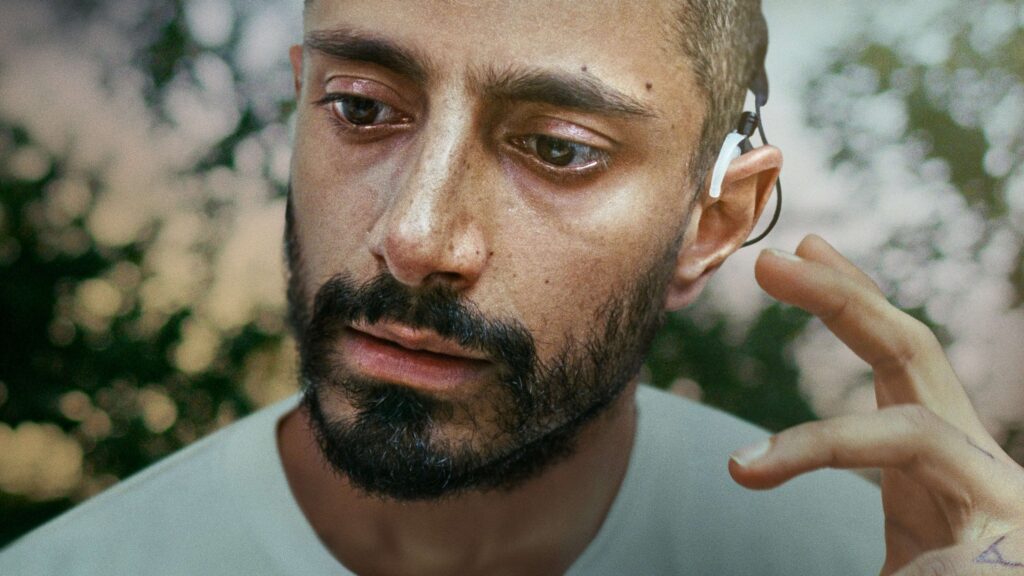
Sound plays a character in Sound of Metal, and the film’s sound design is indeed groundbreaking. By allowing the audience to hear what Ruben hears, it immerses viewers in his auditory experience. This design adds a sensory layer that transcends the visual and auditory elements of traditional filmmaking, placing you within Ruben’s headspace, experiencing his loss firsthand.
What sets Sound of Metal apart is its portrayal of the Deaf community. The film doesn’t depict deafness as a loss or a tragedy but as a different way of experiencing the world. By introducing us to characters who have embraced their deafness, it challenges conventional perceptions of disability. This portrayal is not only refreshing but also culturally significant, offering an insight into a community often misrepresented or overlooked in mainstream media.
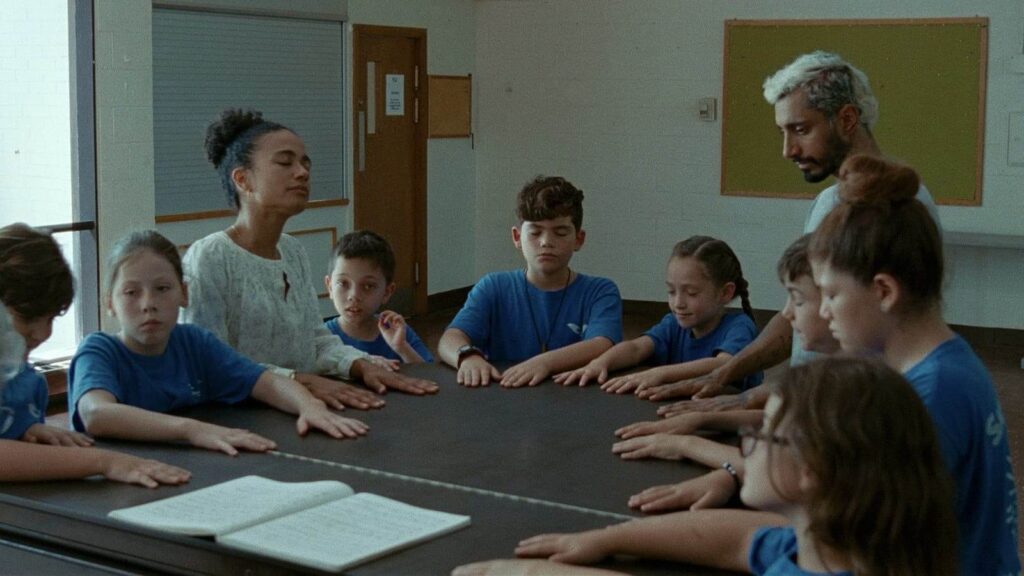
Thematically, Sound of Metal is rich and complex. It explores identity and what happens when a significant part of that identity is ripped away. It delves into addiction, not only to substances but to former lives and selves, and the fear of letting go. The themes of acceptance, resilience, and self-discovery run through the narrative, making it a universal story that can resonate with anyone who has faced significant life changes.
The pacing of the film is deliberate, allowing the story to unfold naturally without rushing through Ruben’s journey. This pacing might feel slow to some, but it’s essential to the storytelling, giving the audience time to absorb and reflect on what’s happening on the screen.
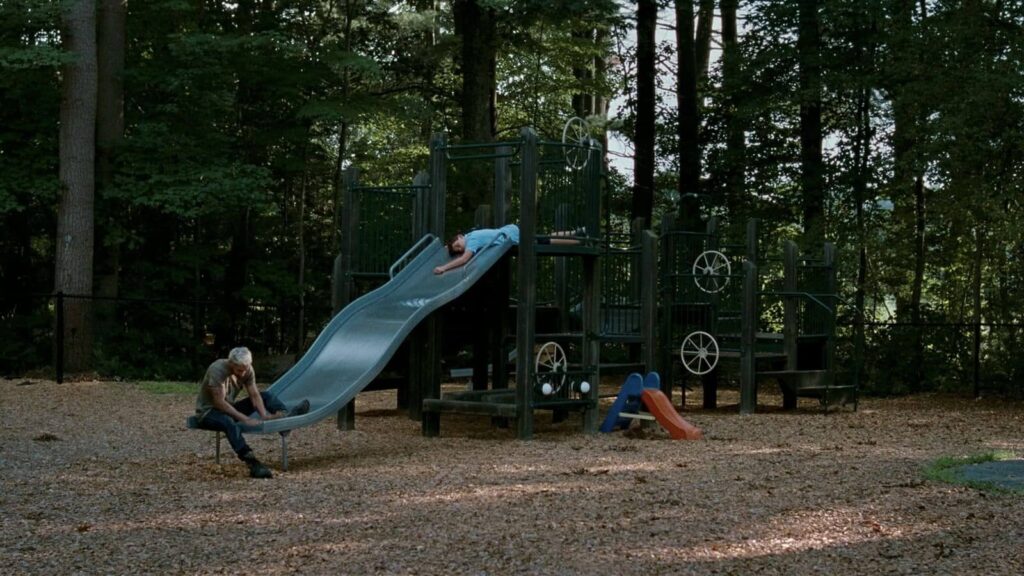
The film’s conclusion is powerful and contemplative, leaving viewers with a sense of silence that is both literal and metaphorical. It’s a silence filled with meaning, reflection, and acceptance, a fitting end to a story that explores the very nature of sound and silence.
The Theme of Sound of Metal
Sound of Metal explores the protagonist Ruben’s sudden loss of hearing, a devastating event that triggers a profound personal crisis, touching on themes of identity, loss, addiction, disability, and acceptance.
Ruben’s sense of identity is closely tied to his life as a heavy metal drummer, so his sudden hearing loss extends beyond a physical ailment to an existential struggle. His loss of hearing symbolizes a loss of self, forcing him to redefine his identity. Alongside this, Ruben’s past struggle with addiction resurfaces as he grapples with his new reality. His addiction is not confined to substances but expands to an obsession with his former life, illuminating how our compulsions can control us, and how loss can lead to a return to harmful patterns.

A central theme in Sound of Metal is its portrayal of the Deaf community and the concept of disability. By showing characters who view deafness as a culture rather than a disability, the film challenges traditional perceptions and poses profound questions about what it means to be “normal.” Ruben’s journey towards accepting his deafness reflects a broader human struggle with acceptance and resonates with anyone who has faced something they cannot change.
Themes of community and isolation run through the narrative, highlighting the tension between individuality and belonging. Ruben’s introduction to the Deaf community, his challenges fitting in, and his ultimate isolation are a microcosm of universal human connections. The transformation of his relationship with his girlfriend, Lou, mirrors the changing dynamics of personal relationships in the face of life-altering adversities.
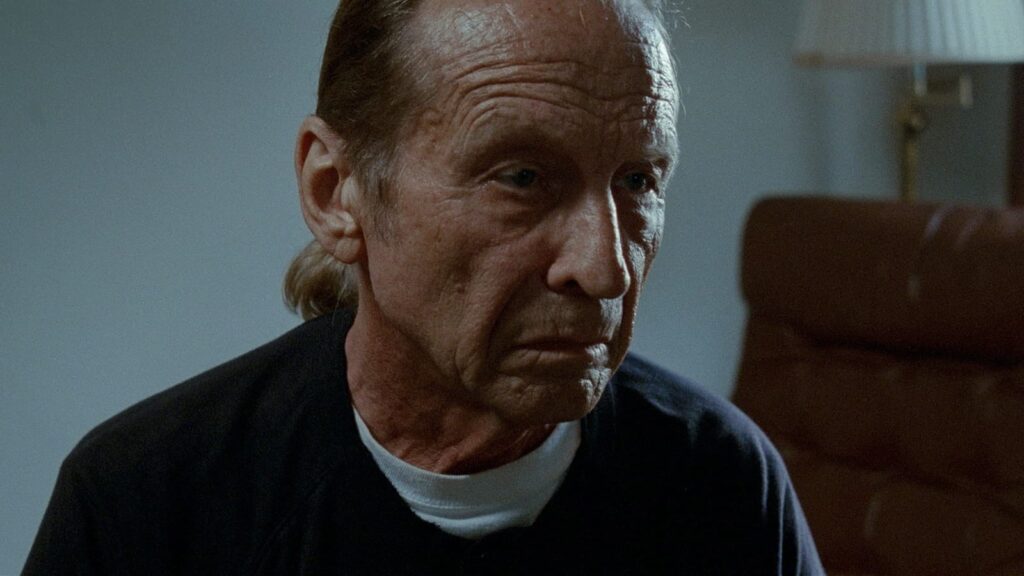
Ruben’s story is also a testament to human resilience and transformation. His initial resistance evolves into adaptability and growth, offering hope and inspiration. This theme is beautifully juxtaposed with the struggle between technology and nature, as seen through Ruben’s decision to get cochlear implants. His inability to accept his natural state and the societal inclination to “fix” what is perceived as wrong reflects a deeper conflict that transcends his individual experience.
Finally, the film uses silence not just as a physical state but as a metaphor for introspection, peace, and self-acceptance. The immersive sound design and Ruben’s ultimate decision to embrace silence symbolize his acceptance of his new reality and the embrace of a more reflective, tranquil existence.
The Cinematography of Sound of Metal
The cinematography of Sound of Metal executed by Daniël Bouquet, plays a crucial role in conveying the film’s emotional landscape. Through a meticulous choice of camera angles, framing, and lighting, the visual storytelling mirrors the protagonist’s inner turmoil and transformation.
One key aspect is the use of intimate close-ups, focusing on Ruben’s face and hands, which encapsulates his connection with sound and his evolving relationship with silence. This choice allows the audience to closely relate to Ruben’s emotional state, feeling his distress, determination, and eventual acceptance.
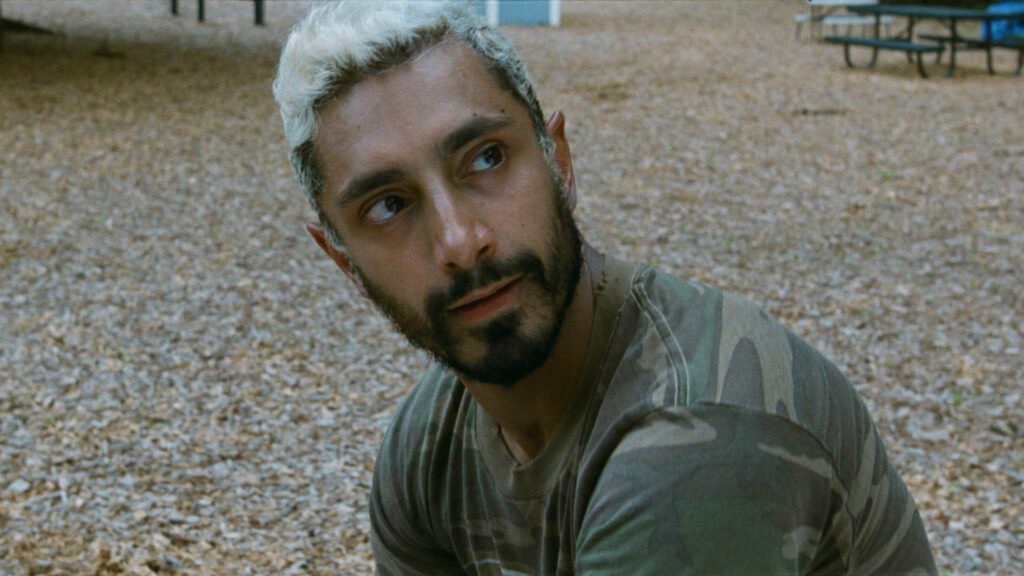
The visual language also complements the film’s groundbreaking sound design, providing a sensory experience that immerses the audience in Ruben’s world. The camera movements are often subtle, allowing the sound to lead, but they align with the auditory shifts to create a cohesive and impactful experience.
Contrasting color palettes and lighting schemes delineate different phases of Ruben’s journey. The raw, gritty visuals of his life on the road with the band are replaced with softer, more muted tones as he enters the deaf community. This visual transformation helps underline his growth and adaptation.
In scenes where Ruben grapples with his new reality, the camera often takes on a subjective point of view, providing visual cues that emulate his auditory experience. This reinforces his isolation and his struggle to reconnect with his surroundings.
The Soundtrack of Sound of Metal
The soundtrack of Sound of Metal is a central part of the film’s narrative and experience, composed by Abraham Marder and Nicolas Becker. Unlike traditional film scores, it doesn’t rely heavily on music but rather on sound design, creating an auditory landscape that aligns with the protagonist’s journey into deafness.
The film begins with the aggressive and loud sounds of heavy metal music, symbolizing Ruben’s life as a drummer. As the story progresses, the sound begins to distort and muffle, reflecting his deteriorating hearing. This gradual shift in sound quality places the audience inside Ruben’s head, allowing them to experience his loss firsthand.
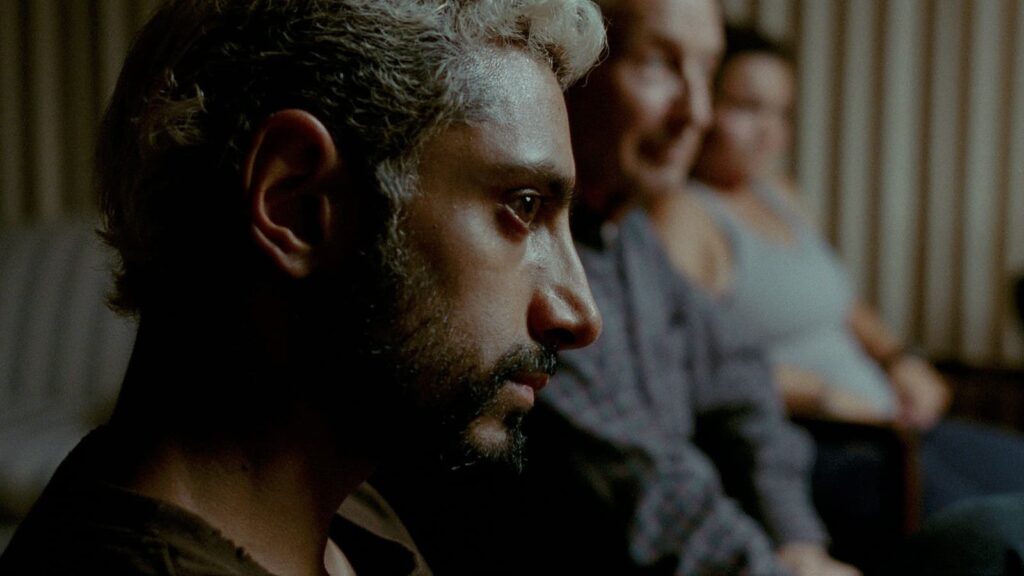
In the deaf community, natural sounds and vibrations become prominent. Silence, too, becomes a character in itself, portraying a new form of communication and understanding. The lack of traditional music emphasizes this silence, allowing the audience to focus on subtler sounds and vibrations that Ruben begins to notice.
The film uses a combination of diegetic and non-diegetic sounds to immerse the audience in Ruben’s world. This includes the use of actual deaf actors and genuine sign language, further grounding the sound design in authenticity.
In crafting the sound for Sound of Metal, the filmmakers consulted with members of the deaf community and audiology experts. The result is a pioneering work that challenges conventional sound design and composition in cinema.
You can listen to the Motion Picture Soundtrack below:
The Cast of Sound of Metal
- Riz Ahmed as Ruben Stone – The protagonist, a heavy metal drummer who loses his hearing.
- Olivia Cooke as Lou Berger – Ruben’s girlfriend and lead singer in their band, who is deeply concerned about his well-being.
- Paul Raci as Joe – The leader of a deaf community that helps Ruben adapt to his new life; he becomes a mentor to Ruben.
- Lauren Ridloff as Diane – A teacher in the deaf community who helps Ruben learn American Sign Language.
- Mathieu Amalric as Richard Berger – Lou’s father, who has a strained relationship with his daughter.
- Shaheem Sanchez as Jenn – A member of the deaf community who interacts with Ruben.
- Chelsea Lee as Cherry – Another member of the deaf community, adding to the support system for Ruben.
- Michael Tow as Pharmacist – A minor character that Ruben interacts with as he tries to navigate the world without hearing.
The Filmmakers of Sound of Metal
- Director: Darius Marder
- Writers: Darius Marder and Abraham Marder; story by Darius Marder and Derek Cianfrance
- Producers: Bill Benz, Kathy Benz, Bert Hamelinck, Sacha Ben Harroche
- Cinematographer: Daniël Bouquet
- Editor: Mikkel E. G. Nielsen
- Composer: Abraham Marder and Nicolas Becker

Reuben Egg Rolls

Inspiration
The Protagonist, Rueban
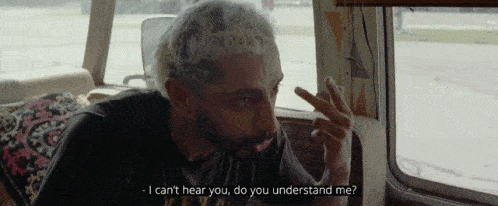
More About Sound of Metal
Sound of Metal isn’t based on one specific true story, but it’s deeply inspired by real-life experiences. Directed by Darius Marder, the film follows Ruben, a drummer facing progressive hearing loss, who struggles to redefine his identity. Riz Ahmed trained extensively, learning sign language and immersing himself in deaf culture for authenticity. Many cast members, including Paul Raci, come directly from the deaf and hearing-impaired community, adding realism. While Ruben’s personal journey is fictional, the film truthfully captures the emotional and cultural realities of hearing loss.
Sound of Metal was primarily filmed in Massachusetts, specifically around the Boston area and surrounding towns like Ipswich, Danvers, Cambridge, Rowley, and Framingham. The filmmakers chose authentic, intimate locations to highlight Ruben’s personal journey and emphasize realism, especially within the deaf community scenes. These New England settings helped ground the story in a relatable, real-world environment

